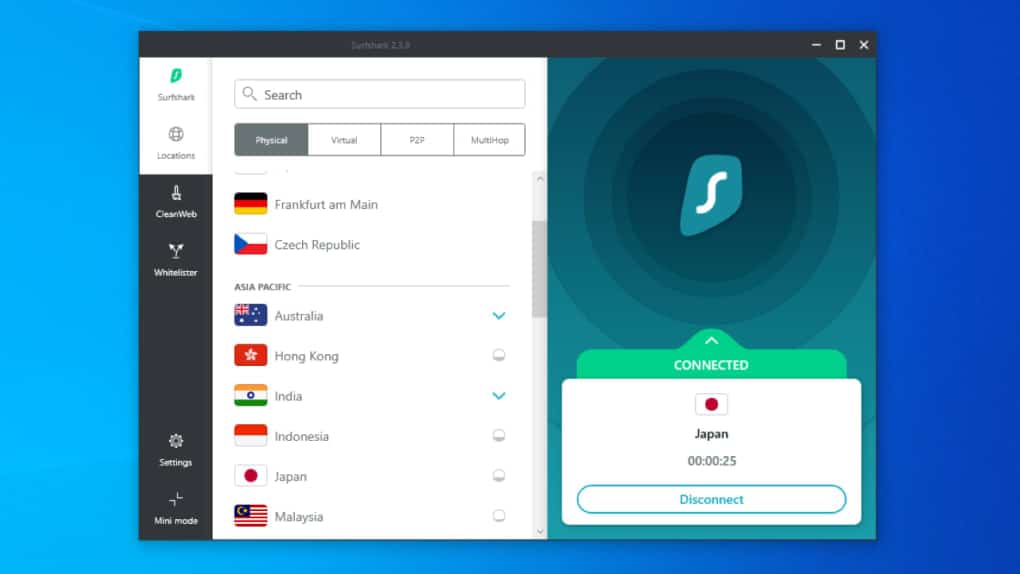Note: We always recommend using a paid VPN. Free VPN or browser extensions can make your connection speed slow, show annoying pop-up ads, and bring malware into your system.
Increased Security on Public Wi-Fi
1 Increased Security on Public Wi-Fi2 Avoid Being Monitored By Your ISP3 Data Privacy from Apps4 Access Any Content from Any Place5 Secure Remote Working6 Save Cost on Shopping
We’re always using public wi-fi whenever we go out. Whether it’s in a restaurant, a coffee shop, library, airport, or your university campus. It might seem harmless, but whenever you’re connecting to public Wi-Fi, you’re actually exposing your online activity to potential intruders. Cyber attacks are not a joke. These days every other hacker are lurking around public networks to hack into users devices and track their activities. Sometimes, you won’t even realize that someone is stalking your online activities and potentially stealing information from you. You might even end up compromising your social media details or banking information. Using a VPN protects you from such risks. A VPN hides your connection and masks your browsing history or any activity that you’re doing online. Most intruders won’t even be able to spot if you’re connected to this network or not.
Avoid Being Monitored By Your ISP
Being on the internet without a VPN is like leaving your door open at night. It’s an open invitation for anyone to track or monitor your activities even if you’re on a private network. The biggest threat actually comes from your Internet Service Provider (ISP). Even though you’re paying them a good amount every month, your connection is still at their mercy. ISP’s can monitor anything you do on your private network, block certain sites or contents, even reduce your connection speed when there’s increased traffic on the network. This is called bandwidth throttling. ISPs can also sell your data to advertisers. Major American ISPs like AT&T, T-Mobile, Verizon, and Sprint all have admitted to selling their user’s location data to advertisers and government agencies. This is actually a growing practice among ISPs. Using a VPN means that you’ll no longer have to worry about your ISP. It’ll hide your IP from anyone, including your ISP so they can’t access your online information or location. Using a VPN will also protect you from getting throttled, as your ISP won’t see your IP on their internet traffic list.
Data Privacy from Apps
Your ISP isn’t the only one potentially tracking and gathering your data. Most of your favorite apps and services are constantly collecting your private information and selling them to advertisers. Facebook, Google, Youtube and many other apps collect your online browsing data to target you with specific ads. A VPN can prevent such apps and websites from getting critical data like your browser history or location. While platforms like Facebook use advanced algorithms to collect browser data, a VPN won’t fully stop their access, but it’ll definitely limit the type of personal data they can access from you.
Access Any Content from Any Place
Did you ever get that annoying error screen on Youtube that says ‘This video is not available in your region? Or maybe you saw a new movie coming to Netflix, but can’t find it on your Netflix app. While users from any corner of the world pay almost the same amount for a Netflix subscription, they don’t get the same amount of content to choose from. Geo-restriction is an annoying feature for popular streaming platforms like Netflix, Youtube, Hulu, Prime, and many more. There’s a lot of popular content on these platforms that are blocked in different regions. You can easily avoid this restriction by using a VPN. With a VPN, you can virtually choose any country as your browsing location and access any content available on the web.
Secure Remote Working
A study showed that 71% of employees in admin roles are working from home or remotely. After the global pandemic, companies will continue to promote remote working roles. When you’re working in an office, your device is usually connected to a secured LAN network with custom firewalls and security protocols. But you won’t have that same security when working remotely. You might be working from your own private network at home or from public Wi-FI. In that case, you’re putting the company’s confidential files and important client data at risk. A VPN has data encryption features, which keep your confidential information safe. VPNs have peer-to-peer encryption, which means that a hacker won’t be able to intercept any communication between you and your clients. If you have a business, you can provide VPN access to all your employees who are working away from the office. It keeps your important information always safe, allows constant communication without any intrusion, and protects your customer data.
Save Cost on Shopping
Similarly, Playstation games on the US store is far more expensive than the Argentina or Turkey store. With a little bit of research, VPN location spoofing capabilities can help you save a lot of money. Also read:
How to browse privately and anonymously using Mozilla Firefox8 Dos and Don’ts of While Using Public Wi-Fi (Updated 2021)Google Chrome not working/responding after windows 10 update How to reset network settings in windows 10 (Fix Common Internet problems)9 Reasons why windows 10 computers running slow and how to speed up it?






